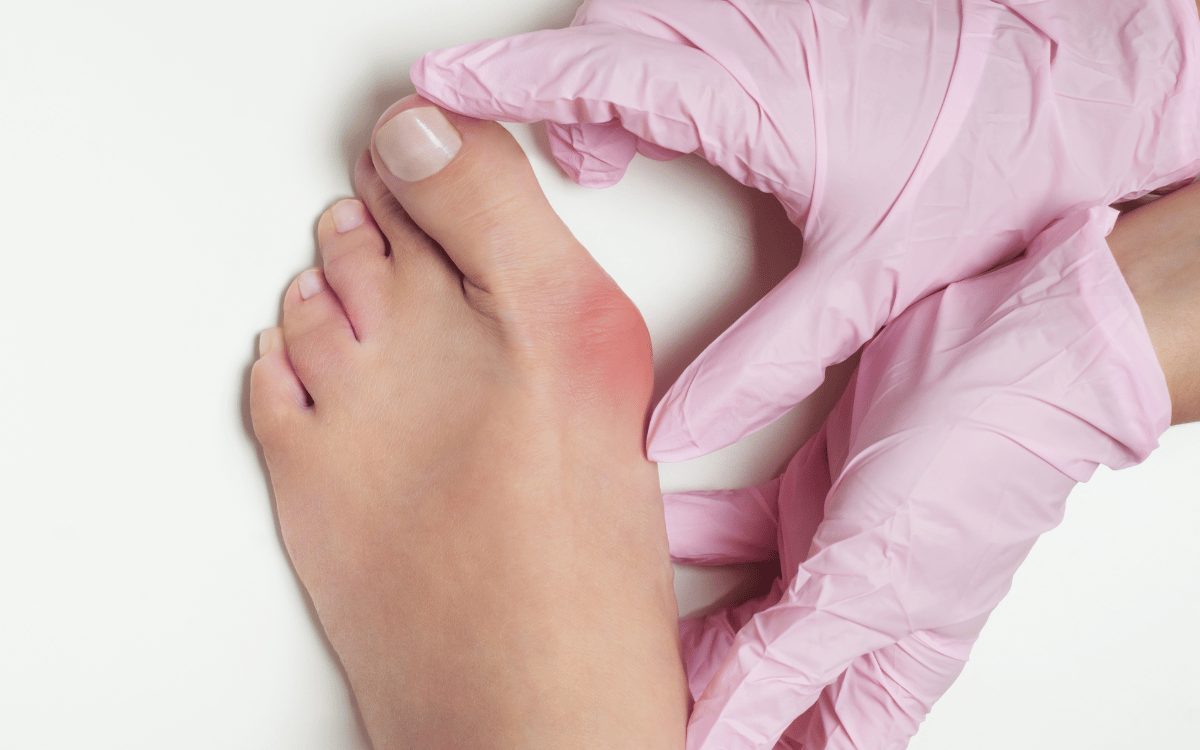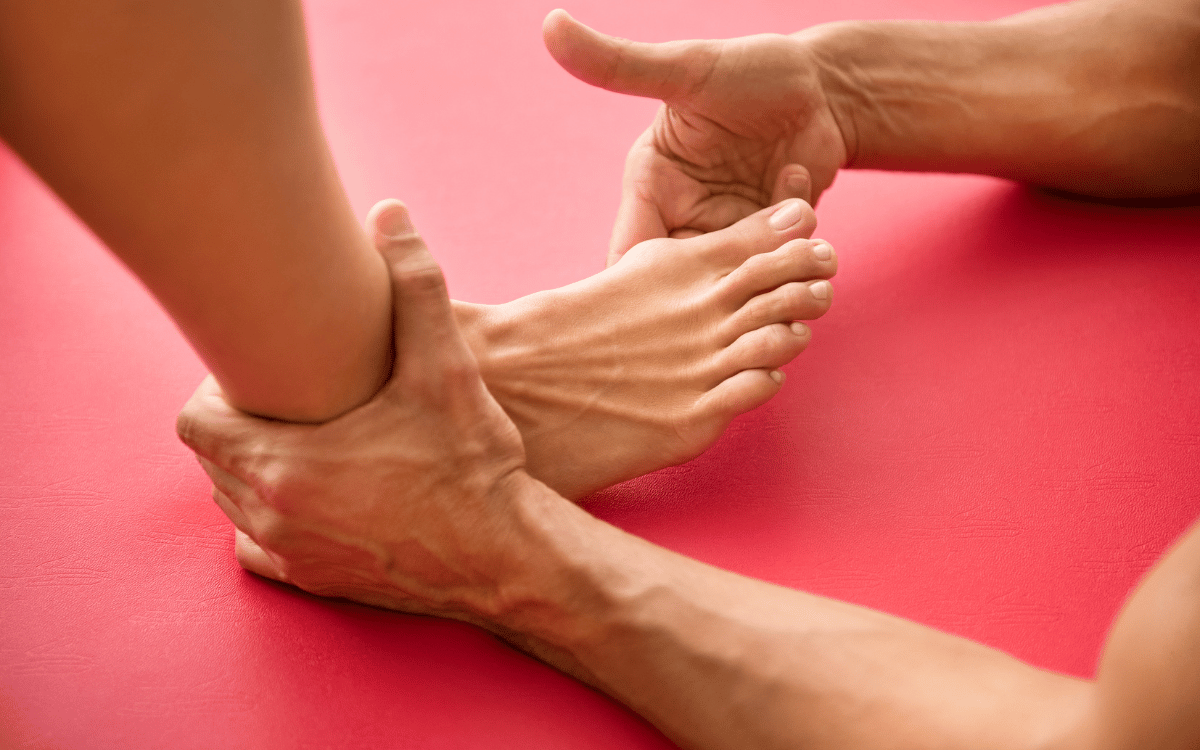In each individual, bunion symptoms range based on the severity of the issue and/or the person’s level of pain tolerance. Though other health issues (like gout or arthritis) might cause some of these same symptoms, your podiatrist or doctor should be able to tell if the symptoms are caused by bunions or another condition. Pain is not a great indicator of how advanced your bunion and studies suggest that you don’t feel the first 93% of most issues like a bunion. So this means you may have a range of issues underlying the skin, and if you wait for pain it may be too late. We strongly recommend you get your bunion checked via an assessment and then in turn a weight bearing x ray. Particularly if you have a family history or notice any deviation of your big toe, however minor.
Pain
Bunions tend to lead to pain and soreness at the big toe joint, the 1st MTPJ. Though persistent pain is one of the most common signs that a bunion requires treatment, pain itself isn’t always the best guide on what is happening with your bunion. In fact, a bunion can be 90% advanced before a person even feels any pain or discomfort at all. But as the condition progresses, the pain is often indicative of a more advanced issue. If a bunion is especially sore it may mean there is degenerative change or osteoarthritis.
Inflammation
Soft tissue swelling is common in and around the 1st MTPJ as the joint begins to protrude outward. The skin becomes inflamed and red, and the inflammation may persist for prolonged periods of time if the bunion goes untreated.
Bony Lump
When the big toe joint becomes misaligned, a noticeable bony lump will often form on the outside of the toe. The bony lump causes a more noticeably defined bump on the outside of the toe joint, and this is typically a sign of a more advanced condition.

Decreased Mobility
As the joint becomes mispositioned, you might also experience a loss of mobility in the affected toe. The loss of mobility could also be the result of persistent pain or pressure from swelling. It may also indicate degenerative change or even osteoarthritis through the joint.
If you’d like to find out more, give us a call on 8966 9300, or head over to our ‘What We Treat’ page, here.



